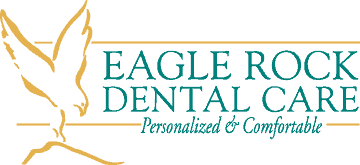It’s been proven time and time again that what we eat has a direct affect on what types of bacteria are going to thrive in and on our bodies. The bacterial colonies that naturally thrive in and on our bodies change based on the foods we eat on a regular basis.
So, what can we do to make sure our bodies get only the best? Simple answer: stop eating anything processed. Your body will thank you for that with increased health and vitality. Your body is a complex machine. The foods you choose and how often you eat them can affect your general health as well as the health of your teeth and gums. If you consume too many sugar-filled sodas, sweetened fruit drinks or non-nutritious snacks, you are putting yourself at risk for tooth decay.
Wise choices
For healthy living and for healthy teeth and gums, think before you eat and drink. It’s not only what you eat but when you eat that can affect your dental health. Eat a balanced diet and limit between-meal snacks. If you are on a special diet, keep your physician’s advice in mind when choosing foods.
For good dental health, keep these tips in mind when choosing your meals and snacks:
- Drink plenty of water.
- Eat a variety of foods from each of the five major food groups, including:
- whole grains
- fruits
- vegetables
- lean souces of protein such as lean beef, skinless poultry and fish; dry beans, peas and other legumes
- low-fat and fat-free dairy foods
If you do snack, choose something that is healthy like fruit or vegetables or a piece of cheese. Foods that are eaten as part of a meal cause less harm to teeth than eating lots of snacks throughout the day, because more saliva is released during a meal. Saliva helps wash foods from the mouth and lessens the effects of acids, which can harm teeth and cause cavities.
Poor nutrition affects the entire immune system, thereby increasing susceptibility to many disorders. People with lowered immune systems have been shown to be at higher risk for periodontal disease. Additionally, research shows a link between oral health and systemic conditions, such as diabetes and cardiovascular disease. So eating a variety of foods as part of a well-balanced diet may not only improve your dental health, but increasing fiber and vitamin intake may also reduce the risk of other diseases.
When should I consult my dentist about my nutritional status?
Always ask your dentist if you’re not sure how your nutrition may affect your oral health. Conditions such as tooth loss, pain or joint dysfunction can impair chewing. People experiencing these problems may be too isolated or weakened to eat nutritionally balanced meals at a time when it is particularly critical. Talk to your dental health professional here at Eagle Rock Dental Care about what you can do for yourself or someone you know in these circumstances. Come visit us or make an appointment at one of our locations in Idaho Falls, Rexburg, or Arco.

